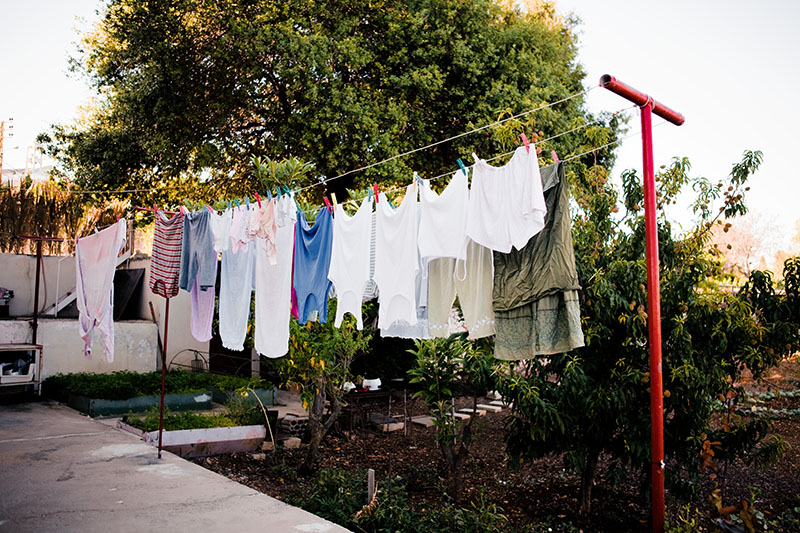I’m not going to lie to you, and typically, neither will any other prepper: prepping isn’t easy.

While, no matter who you are, you’re likely to get a lot of negativity from society over being a prepper, prepping can be especially hard when not even your family is on board with your goal to be more prepared. Hell, even if you don’t get much shaming from society and if every single person in your nuclear family is on the same page as you with regards to being prepared – prepping is still no minor feat. Because the act of getting prepared is not easy.
We live in a time where many live paycheque to paycheque: it’s no wonder so many find it hard to even afford to prep. We can blame part of this on education and economy – it does feel like many were never given adequate lessons on personal finance or frugality in school or at home, and the economy has been pretty rough for us overall – but nonetheless, we’ll have to deal with the bad hand we’ve been given anyway; we’ll need to prep on regardless of the many financial obstacles we’ll have to overcome.
Difficulty also comes in the form of recent generations not being taught as many self-sufficiency skills as our grandparents and great-grandparents had been taught in the past. Preppers should be learning as much as they can about skills like first aid, wilderness survival, gardening, homesteading, car, and home repair – basically anything and everything that can help us out if/when there’s an emergency situation, or heaven forbid, TEOTWAWKI comes heading our way.
Most of the time, generations past would have already picked up these skills just because their parents would have passed down the information to them. These past few generations, however, self-sufficiency skills seem to have been mostly forgotten – abandoned for the ease of modern day technological luxuries. Who needs to learn even something as simple as washing clothes by hand? Fix a car yourself? Forget it! Just rush it off to the mechanic. That seems to be the general trend these days at least.

While it’s true that success will look different for each and every prepper, one thing’s for certain: getting to that point is no walk in the park. It’s an uphill battle.
But you’ll make it. I believe you will. You’ll be one of the ones who really succeeds.
Do you know why?
Well… you’re here – aren’t you?
You’re actually making the effort – taking the time of day – to read information you think will be helpful to you on your quest in becoming a better prepper and survivalist.
You’re taking those spare minutes (and hours!) you could’ve used to relax in front of the TV, and instead pushing yourself to grow by building up your knowledge base.
So remember, even if you’re not getting all the preps you’d like done as quickly as you’d wish them to be done, even if you still don’t feel remotely near prepared, those small steps you’re taking today will pave the way to a much better future.
Take a while to consider just how much you’ve managed to learn this past month alone, how much prepping you’ve been able to accomplish in the last year. Now imagine continuing as diligently as you have been for another 5 years – or even 10 or 15!
Prepping is a marathon, not a sprint. And let me tell you, it’s a damn long marathon at that.
There’s no final destination; no real end goal. Rather, it’s a lifestyle that will be continued for as long as you live. Even if an emergency situation like the kind you’ve been preparing for happens – we all know that prepping doesn’t stop there. Instead, you’ll learn whatever you can from that experience, figure out what you could’ve done better, and become even more prepared for the next time an emergency takes place. You make lists of even more things that can help you, freshen up on your food stockpile, and brush up on your skills – you know, so that in case you ever find yourself in that kind of a situation again, you’re even more ready!
So in the meantime: grow your knowledge, adapt your strategy, invest in your future.

Prepping is hard, but it’s rewarding. You can succeed at prepping, and if you’re reading this kind of thing regularly and trying to apply even part of what you’ve been reading to your everyday life, there’s a very, very good chance you personally are going to succeed.
It’s because you show up time and time again.
And over time, it’s all those little things you’ve done – all those minutes you’ve spent researching and reading, learning and growing, instead of watching TV; all those extra dollars you’ve spent on stockpiling gear rather than purchasing lattes; all that time you’ve spent thinking and planning for the best possible future in the face of a catastrophic event – these things add up.
These small changes and little decisions will make you ready. These simple choices will be the reason you’re prepared.
I really needed this today, thanks
Chris
Glad to have been able to help :).
It’s so nice to get words of encouragement, and believe me it’s needed. Thank you for this post. It’s easy to get discouraged even my own family gets complacent in this instant gratification world we live in. People need to understand that crisis happens every day to someone somewhere, pray that today is not your day for that crisis, but if it is have confidence that you are prepared. My thoughts go to just yesterday I heard someone on the radio (NPR interview) talking about tropical storm Bill and how when they went to the store and all the bottled water was gone. All I could think was, how do you live on the gulf coast and not have stores of water, and then I remember not everyone prepares. I sure hope that person found water and that he learned a valuable lesson.
Yes, indeed! That’s a good story, and I do hope they learned to prepare better for next time as well. I think it’s quite a shame when people don’t learn even after having been through the same natural disasters before. Water is cheap – it can’t be the money factor that usually stops people from prepping in that case, just no foresight I suppose. But maybe situations like those will encourage people to better prepare for the future. We can hope, at least.
I wish cars didnt have so many computers in them nowadays – the most you can do now at home is change the oil on a post 2005 car without it shutting down and entering safe mode etc because a cover got removed without it being plugged into a diagnostic machine. All a tactic to keep the service dollars flowing. Do you guys have any thoughts on maybe an older, simpler vehicle to maybe look for cheap and have as a second car? Like sonething with as few bits to go wrong as possible? I had a great Mazda B Series Ute(Truck) that literally seemed to have 10 working parts under the hood. Surely the less parts to work the car, the less to go wrong! Would love to see an article about reliable cars from the past your readers could look for which wouldnt be as easily boned by emp and arent computer laden. Some cars these days you dont even have a physical key! I wouldnt trust that if the chips were down. Food for thought, and as always, great reading.
Hey Pete! I’m not at all a car expert, and while Thomas knows a thing or two about cars himself, I’m not sure we’d feel comfortable doing an entire piece on reliable cars while having owned so few of them ourselves (the one we had lasted us years, and once we didn’t need it, we got rid of it and did our best to live without a car at all).
You see, I’m not ultimately convinced you need a car to be a prepper, per say. They feel very expensive to own and maintain, especially if like us, you’d rather not have one and can get around on bicycle or by foot instead of owning one.
That being said! I don’t want to leave you hanging, and so if you’re looking for a great frugal car (i.e. doesn’t cost much to upkeep and should be fine for you to maintain at home) check out this article – http://www.mrmoneymustache.com/2012/03/19/top-10-cars-for-smart-people/
That blog is one of my top choices for frugality and I trust the blog owner’s recommendations when it comes to cars. He does his research thoroughly and really knows what he’s talking about.
Not quite sure whether any of those cars have only 10 working parts under the hood, but if you’re looking to pay less in driving around a car so you can put more money toward other preps, this list is definitely one for you.
Hope that helps!
Bravo. Outstanding.
Thanks Chip! & thanks for taking the time to leave a comment as well :).
Well said, thanks :)
kind of an addendum,,,, if you DO have those grandma/grandpa skills and attitudes, PASS THOSE SUCKERS ON. To your kids, or grandkids or neighbors or anybody open to listening.
About 3 years ago, my daughter borrowed some tents, fishing equipment and general outdoor gear 9and some food) for a weekend camping trip with her friends. When they returned stuff on Sunday, her BF at the time told me “dude, she kicked my ass.. She can light campfires, catch fish and cook ’em. and has all this survival stuff in her car trunk..”
A very proud moment for me :)
Yes, yes, yes. Do pass ’em on to your kids! Though I’m sure anyone who still has those skills at this point realizes their value and how rare the skills are and so does that anyway. Hopefully at least!
What an enormous compliment! To both you and your daughter. She must’ve felt amazing being able to show off all the skills that come easy to her, and no doubt you felt just as amazing knowing how well she did. :)
I wish my parents had known more about this stuff and passed it down to me, but alas, camping, outdoors, etc. was never really their thing (at all!).
Thanks Elise!
I think that those of us who take the time to learn, plan and prep are growing in numbers and building our own cimmunities.
I wish I could ay “To hell with the rest” but the truth is, when things go bad I’ll just be grateful I’m able to help those I love and my comunity in general..
Keep Prepping!
I feel that way, too. Do wish many more would jump on board, but I’m sure that’ll take plenty of time. Would be nice if everyone had at least a baseline level of preparation.